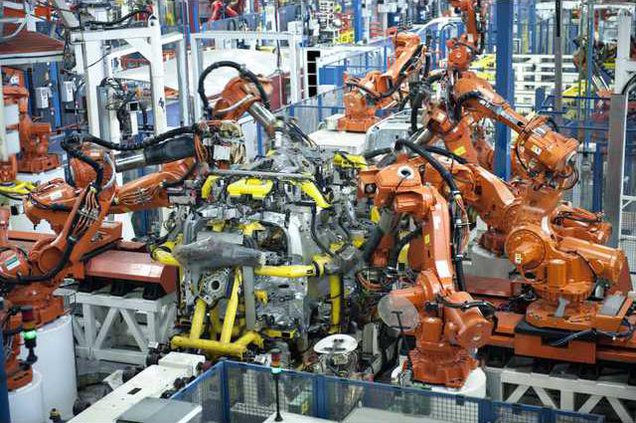With the leaps and bounds being made in technology, a robotic future isnt too far out of reach, especially given the amount of jobs ripe to be replaced by computers.
For example, most people carry around technology in their pockets that duplicates work done, or once done, by actual people. The emails and Facebook posts people send were once mailed out and delivered to individuals. Google search has nearly eliminated the need for encyclopedias and libraries.
While many dont notice this seemingly benign form of computerization, machines may soon be taking over some well-known fields and jobs.
A new study, titled The Future of Employment: How Susceptible Are Jobs to Computerisation? calculated how likely individual jobs were to be filled by computers based on how often they required clever solutions, personal interaction, and negotiation.
Telemarketers are most likely to be replaced by machines, Quoctrung Bui of NPR reported. While this is no surprise given the rise of robocalls, the Bureau of Labor Statistics reported that as of 2014 there were 234,520 telemarketers in the U.S.
On the other hand, mental health and substance abuse social workers only have a 0.3 percent chance of computerization because their job requires a degree of cleverness and personal interaction computers cannot compete with.
Teachers, doctors and nurses, management and artists were also less likely to be replaced compared to those in cleaning, maintenance, transportation and manufacturing.
In order to prepare for the potential for computerization, some colleges and universities across the country are introducing new programs and teaching styles that will create more flexible graduates who may be able to better navigate an increasingly automated world.
Harvards program in general education requires students to take courses outside the realm of their programs in the hopes of broadening their education, and many other schools are taking similar approaches, Robert J. Shiller reported for The New York Times.
Shiller said the two ways to approach this issue would be to give students general, flexible, insight-bearing human learning or to turn to a more business-oriented and real world teaching process that develops more entrepreneurs.
By connecting all disciplines to possible areas of entrepreneurship and business, Shiller suggests future employees may be able to outsmart the robots.
Perhaps we should prepare students for entrepreneurial opportunities suggested by our own disciplines, he said. Even departments entirely divorced from business could do this by suggesting enterprises, nonprofits and activities in which students can later use their specialized knowledge.
For example, most people carry around technology in their pockets that duplicates work done, or once done, by actual people. The emails and Facebook posts people send were once mailed out and delivered to individuals. Google search has nearly eliminated the need for encyclopedias and libraries.
While many dont notice this seemingly benign form of computerization, machines may soon be taking over some well-known fields and jobs.
A new study, titled The Future of Employment: How Susceptible Are Jobs to Computerisation? calculated how likely individual jobs were to be filled by computers based on how often they required clever solutions, personal interaction, and negotiation.
Telemarketers are most likely to be replaced by machines, Quoctrung Bui of NPR reported. While this is no surprise given the rise of robocalls, the Bureau of Labor Statistics reported that as of 2014 there were 234,520 telemarketers in the U.S.
On the other hand, mental health and substance abuse social workers only have a 0.3 percent chance of computerization because their job requires a degree of cleverness and personal interaction computers cannot compete with.
Teachers, doctors and nurses, management and artists were also less likely to be replaced compared to those in cleaning, maintenance, transportation and manufacturing.
In order to prepare for the potential for computerization, some colleges and universities across the country are introducing new programs and teaching styles that will create more flexible graduates who may be able to better navigate an increasingly automated world.
Harvards program in general education requires students to take courses outside the realm of their programs in the hopes of broadening their education, and many other schools are taking similar approaches, Robert J. Shiller reported for The New York Times.
Shiller said the two ways to approach this issue would be to give students general, flexible, insight-bearing human learning or to turn to a more business-oriented and real world teaching process that develops more entrepreneurs.
By connecting all disciplines to possible areas of entrepreneurship and business, Shiller suggests future employees may be able to outsmart the robots.
Perhaps we should prepare students for entrepreneurial opportunities suggested by our own disciplines, he said. Even departments entirely divorced from business could do this by suggesting enterprises, nonprofits and activities in which students can later use their specialized knowledge.

